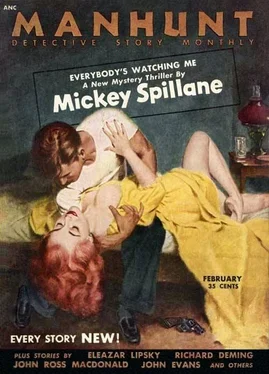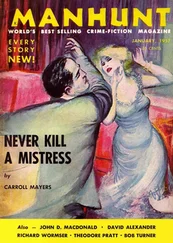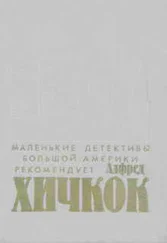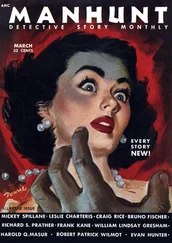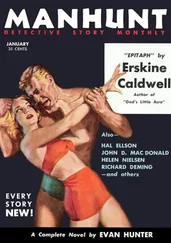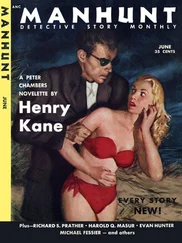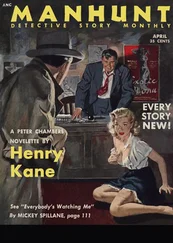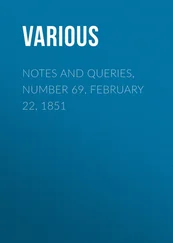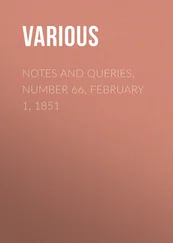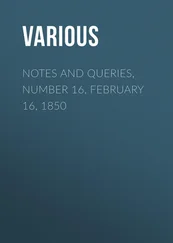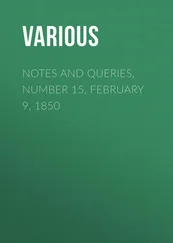Ричард Деминг - Manhunt. Volume 1, Number 2, February, 1953
Здесь есть возможность читать онлайн «Ричард Деминг - Manhunt. Volume 1, Number 2, February, 1953» весь текст электронной книги совершенно бесплатно (целиком полную версию без сокращений). В некоторых случаях можно слушать аудио, скачать через торрент в формате fb2 и присутствует краткое содержание. Город: New York, Год выпуска: 1953, Издательство: Flying Eagle Publications, Жанр: Детектив, на английском языке. Описание произведения, (предисловие) а так же отзывы посетителей доступны на портале библиотеки ЛибКат.
- Название:Manhunt. Volume 1, Number 2, February, 1953
- Автор:
- Издательство:Flying Eagle Publications
- Жанр:
- Год:1953
- Город:New York
- ISBN:нет данных
- Рейтинг книги:4 / 5. Голосов: 1
-
Избранное:Добавить в избранное
- Отзывы:
-
Ваша оценка:
- 80
- 1
- 2
- 3
- 4
- 5
Manhunt. Volume 1, Number 2, February, 1953: краткое содержание, описание и аннотация
Предлагаем к чтению аннотацию, описание, краткое содержание или предисловие (зависит от того, что написал сам автор книги «Manhunt. Volume 1, Number 2, February, 1953»). Если вы не нашли необходимую информацию о книге — напишите в комментариях, мы постараемся отыскать её.
Manhunt. Volume 1, Number 2, February, 1953 — читать онлайн бесплатно полную книгу (весь текст) целиком
Ниже представлен текст книги, разбитый по страницам. Система сохранения места последней прочитанной страницы, позволяет с удобством читать онлайн бесплатно книгу «Manhunt. Volume 1, Number 2, February, 1953», без необходимости каждый раз заново искать на чём Вы остановились. Поставьте закладку, и сможете в любой момент перейти на страницу, на которой закончили чтение.
Интервал:
Закладка:
And probably no bargain basement.
I heaved back the heavy glass door and walked into a large room with soft dusty rose walls, a vaulted ceiling, moss green carpeting, and indirect lighting like a benediction. Scattered tastefully about were upholstered chairs and couches, blond in the wood and square in the lines. A few chrome ashstands, an end table or two, and at the far end a blond desk and a man sitting behind it.
The man stood up as I came in. He floated down the room toward me, a tall slender number in a cutaway coat, striped trousers and a gates-ajar collar. He looked like a high-class undertaker. He had a high reedy voice that said:
“Good afternoon, sir. May I be of service?”
“Are you the high priest?” I said.
His mouth fell open. “I beg your pardon?”
“Maybe I’m in the wrong place,” I said. “I’m looking for the tailor shop. No name outside but the number checks.”
His backbone got even stiffer although I hadn’t thought that possible. “This,” he said in a strangled voice, “is A. Cullinham Grandfils. Are you interested in a garment?”
“A what?”
“A garment.”
“You mean a suit?”
“Ah — yes, sir.”
“I’ve got a suit,” I said. I unbuttoned my coat and showed it to him. All he did was look pained.
“What I came by for,” I said, “was to get the address of a customer of yours. I’m not sure but I think his name’s Andrus — Franklin Andrus.”
He folded his arms and brought up a hand and turned his wrist delicately and rested his chin between his thumb and forefinger. “I’m afraid not. No. Sorry.”
“You don’t know the name?”
“I’m not referring to the name. What I am attempting to convey to you is that we do not give out information on our people.”
I said, “Oh,” and went on staring at him. He looked like the type you can bend easy. I dug out the old deputy sheriff’s star I carried for emergencies like this and showed it to him, keeping the lettering covered with the ball of my thumb. He jerked down his arms and backed away as though I’d pulled a gun on him.
“This is official,” I said in a tough-cop voice. “I’m not here to horse around. Do you cooperate or do we slap you with a subpoena?”
“You’ll have to discuss the matter with Mr. Grandfils,” he squeaked. “I simply am not — I have no authority to— You’ll just have to—”
“Then trot him out, Curly. I don’t have all day.”
“Mr. Grandfils is in his office. Come this way, please.”
We went along the room and through a glass door at the far end and along a short hall to another door: a solid panel of limed oak with the words A. Cullinham Grandfils, Private, on it in raised silver letters. The door was knocked on and a muffled voice came through and I was inside.
A little round man was perched in an enormous leather chair behind an acre of teakwood and glass. His head was as bald as a collection plate on Monday morning. A pair of heavy horn-rimmed glasses straddled a button nose above a tiny mouth and a chin like a ping-pong ball. He blinked owlishly at me and said, “What is it, Marvin?” in a voice so deep I jumped.
“This... ah... gentleman is the police, Mr. Grandfils. He has demanded information I simply haven’t the right to—”
“That will be all, Marvin.”
I didn’t even hear him leave.
“I can’t stand that two-bit diplomat,” the little man said. “He makes the bottom of my foot itch.”
I didn’t say anything.
“Unfortunately he happens to be useful,” he went on. “The women gush at him and he gushes back. Good for business.”
“I thought you only sold men’s suits,” I said.
“Who do you think picks them out? Take off that coat and sit down. I don’t know your name.”
I told him my name and got rid of the trench coat and hat and drew up a teakwood chair trimmed in silver and sat on it. He made a quarter-turn in the big chair and his glasses flashed at me in the soft light.
“Police, eh?” he said suddenly. “Well, you’ve got the build for it. Where did you get that ridiculous suit?”
“This ridiculous suit set me back sixty-five bucks,” I said.
“It looks it. What are you after, sir?”
“The address of one of your customers.”
“I see. Why should I give it to you?”
“He was murdered. The address on his identification was incorrect.”
“Murdered!” His mouth dropped open, causing the glasses to slip down on his nose. “Good heavens! One of my people?”
“He was wearing one of your coats,” I said.
He passed a tremulous hand across the top of his head. All it smoothed down was scalp. “What was his name?”
“Andrus. Franklin Andrus.”
He shook his head immediately. “No, Mr. Pine. None of my people has that name. You have made a mistake.”
“The coat fitted him,” I said doggedly. “He belonged in it. I might have the name wrong but not the coat. It was his coat.”
He picked a silver paper-knife from the silver trimmed tan desk blotter and rapped it lightly over and over against the knuckles of his left hand. “Perhaps you’re right,” he said. “My coats are made to fit. Describe this man to me.”
I gave the description, right down to the kidney-shaped freckle on the lobe of the left ear. Grandfils heard me out, thought over at length what I’d said, then shook his head slowly.
“In a general way,” he said, “I know of a dozen men like that who come to me. The minor touches you’ve given me are things I never noticed about any of them. I’m not a trained observer and you are. Isn’t there something else you can tell me about him? Something you’ve perhaps inadvertently overlooked?”
It hardly seemed likely but I thought back anyway. I said, “The rest of his clothing was a little unusual. That might mean something to you.”
“Try me.”
I described the clothing. By the time I was down to where the dead man hadn’t been wearing socks, Grandfils had lost interest. He said coldly, “The man was obviously some tramp. None of my people would be seen on the street in such condition. The coat was stolen and the man deserved what happened to him. Frayed slacks! Heavens!”
I said, “Not much in his pockets, but I might as well tell you that too. A dark blue necktie with a Marshall Field label, a pair of gold-plated tweezers, several transparent envelopes about the size of a postage stamp, a pocket comb and some change...”
My voice began to run down. A. Cullinham Grandfils had his mouth open again, but this time there was the light of recognition in his eyes. He said crisply, “The coat was a gray flannel, Mr. Pine?”
“Yeah?”
“Carlton weave?”
“Hunh?”
“Never mind. You wouldn’t know that. Quite new?”
“I thought so.”
He bent across the desk to move a key on an intercom. “Harry,” he snapped into the box. “That gray flannel lounge suit we made for Amos Spain. Was it sent out?”
“A week already,” the box said promptly. “Maybe ten days, even. You want I should check exactly?”
“Never mind.” Grandfils flipped back the key and leaned into the leather chair and went on tapping his knuckles with the knife. “Those tweezers and envelopes did it, sir. He’s an enthusiastic stamp collector. Less than a month ago I saw him sitting in the outer room lifting stamps delicately with those tweezers and putting them in such envelopes while waiting for a fitting.”
“Amos Spain is his name?”
“It is.”
“He fits the description I gave?”
“Physically, exactly. But not the frayed slacks and dirty shirt. Amos Spain wouldn’t be found dead in such clothes.”
“You want to bet?”
“... Oh. Of course. I simply can’t understand it!”
Читать дальшеИнтервал:
Закладка:
Похожие книги на «Manhunt. Volume 1, Number 2, February, 1953»
Представляем Вашему вниманию похожие книги на «Manhunt. Volume 1, Number 2, February, 1953» списком для выбора. Мы отобрали схожую по названию и смыслу литературу в надежде предоставить читателям больше вариантов отыскать новые, интересные, ещё непрочитанные произведения.
Обсуждение, отзывы о книге «Manhunt. Volume 1, Number 2, February, 1953» и просто собственные мнения читателей. Оставьте ваши комментарии, напишите, что Вы думаете о произведении, его смысле или главных героях. Укажите что конкретно понравилось, а что нет, и почему Вы так считаете.
